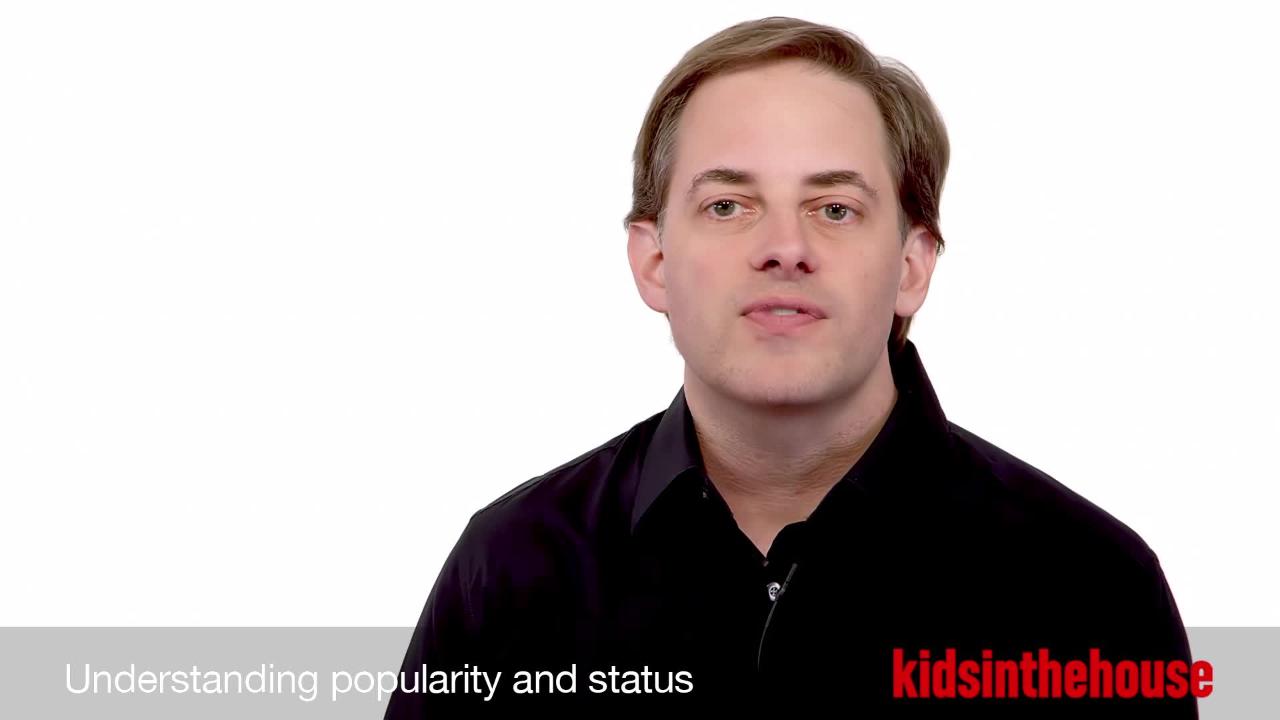Understanding popularity and status
- So when most of us hear the word popular, we think about high school kids and their popularity, but that's actually only just one kind, which we refer to as status. That kind of popularity is really how visible you are, how much you're influential, people want to be you, and often, you're more aggressive or dominant. That's not the kind of popularity that leads to good outcomes. The second kind of popularity is the one that we experience first in life. Even when we're three, we can identify those who are most likable. And likable kids tend to be those who really help keep a group harmonious. They make everyone feel valued and welcome, and that kind of likability tends to be important because likable kids grow up to be likable adolescents and likable adults in most cases. And that leads to a whole lifetime of benefits.
Mitch Prinstein explains that likable kids grow up to be likable adolescents and likable adults in most cases.
Related Videos
Transcript
Expert Bio
More from Expert
Mitch Prinstein, Ph.DProfessor of Psychology and Neuroscience
Mitch Prinstein, Ph.D. is a husband, a father, board certified in clinical child and adolescent psychology, and serves as the John Van Seters Distinguished Professor of Psychology and Neuroscience, and the Director of Clinical Psychology at the University of North Carolina at Chapel Hill.Mitch’s Peer Relations Lab has been conducting research on popularity and peer relations for almost 20 years, and has been funded by the National Institute of Mental Health, the National Institute of Child and Human Development, and several private foundations, resulting in over 100 scientific works, including a slew of scientific journal articles, book chapters, a set of encyclopedias on adolescent development, and even a textbook on the field of clinical psychology.Mitch is deeply committed to science and training in clinical psychology, having served as President of the Society for a Science of Clinical Psychology and the Society of Clinical Child and Adolescent Psychology, the Editor-in-Chief of the Journal of Clinical Child and Adolescent Psychology, and on the boards of the American Psychological Association, the Council of University Directors of Clinical Psychology, and publication board of the Association of Behavioral and Cognitive Therapies.He and his research have been featured in The New York Times, The Wall Street Journal, National Public Radio, the Los Angeles Times, CNN, U.S. News & World Report, Time magazine, New York magazine, Newsweek, Reuters, Family Circle, Real Simple, and elsewhere.




 GET ACCESS TO ALL PREMIUM CONTENT WITH NO ADS FOR $4.99/MONTH
GET ACCESS TO ALL PREMIUM CONTENT WITH NO ADS FOR $4.99/MONTH
Login or Register to view and post comments